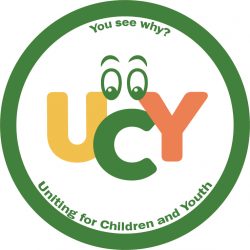Question 3 – Zone 4 Responses
Contents
The Question in brief
Responses from:
– Wendy Hough
– Dragos Popa
The Question in Brief
This question comes from Charlotte Dwyer and Ny Holmes, two Grade 11 Ottawa secondary school students who recently organized Nepean High School’s successful walkout against Ford’s changes to the curriculum.
Their Question
What steps are you going to take to ensure that students feel they are heard in regards to their involvement in THEIR curriculum?
Wendy Hough
I would like to thank the UCY for once again bringing another important topic to the discussion table. I am heartily impressed by efforts of Charlotte and Ny to engage with the candidates on this issue. I am going to take liberties with this question and start with my ideas about the abandonment of the updated health curriculum and then I will return to the issue of student input into curriculum decisions.
I want to start by saying that I unequivocally believe that an egregious mistake has been made by the provincial government in its decision to put the kibosh on the newly developed health curriculum and revert to the 1998 content. As the mother of two teenagers, I am appalled that the government thinks that the previous curriculum is even remotely adequate to meet the needs of our children growing up in today’s world. Furthermore, as a tax payer, I am beyond angry that we hired professionals who are experts in the field and in curriculum development to bring us into the next century and they produced their deliverable and the government just chucked it in the bin. We, the tax paying citizens, coughed up for that. This does not make me happy. But, what makes me even less happy is that the Ontario government has chosen to use the safety and well being of our children as pawns in a political game. I don’t believe that there is any concern about the actual content of the curriculum by the sitting government; what we have is a leader who made a promise to eliminate this progressive and appropriate curriculum to secure votes. I would like to see a full reversal of this decision and the subsequent reinstatement of the revised curriculum. I feel very strongly that the Board will need to provide guidance to our teachers as to their interpretation of the curriculum options available to them. Given its size and geographical positioning, the OCDSB sits well poised to play a leadership role relative to other school boards in this process. I will also add that I spent more than a decade doing research and teaching in First Nations communities in Northern Quebec and I feel a very strong personal connection to indigenous education. I am deeply saddened by the apparent lack of concern by the Ontario government for this issue especially when we have finally, as a society, started to take meaningful strides towards truth and reconciliation. I am pleased to see that this issue is actually on the student radar.
Now that I am done ranting, I can turn to your question pertaining to student involvement in curriculum decisions. My platform for this election is probably best captured by the term collaborative education. I believe that the collaboration of all potential stakeholders in any process is the key to success – involving students and teachers in the decision making process will undoubtedly facilitate the development of an end product that is relevant and conducive to uptake by both groups. I would like to move well beyond the current level of student participation in Board decisions that is limited to the input of the sitting student representatives. I would like to see the use of student (and parent and teacher) focus groups as a matter of course on virtually all issues as we progress from the earliest ideational phase through to implementation and follow-up. I feel strongly that the the OCDSB should embrace the 4 Cs of 21st century learning – critical thinking, communication, collaboration and creativity – by incorporating them into our operating paradigm. In a nutshell, I want to hear what students have to say because I think it matters. Talk to me.
Thank you again for this opportunity to speak to an issue of interest to you and undoubtedly many Ottawa voters.
Dragos Popa
Students’ access to evidence-based information and meaningful engagement with the curriculum are critically important to their education and overall development as young people and responsible citizens.
It is very disappointing and unfortunate that the conversation relating to the health curriculum, Indigenous education, math scores or standardized testing has become highly politicized.
I am hopeful that the upcoming consultations on the education system in Ontario will be comprehensive and conducted in good faith, and allow all key stakeholders (including students, parents, and educational experts) to provide their views and influence the final outcome.
Regarding the health and physical education curriculum specifically, I support a return to the 2015 content, and I am also supportive of an updated version that builds on the latest research and evidence-based approaches in the field (regarding sexual health education, mental health, and substance use).
And once the new health and physical education curriculum is finalized we need to make sure that the content is taught properly and consistently across the district. I’ve heard it many times, that some health teachers were uncomfortable teaching some of the subjects – which made the curriculum itself irrelevant, unfortunately.
Personally I promote no-nonsense solutions, which are evidence-based and free of ideological agendas. I encourage all to participate actively in the new provincial consultations, share their perspectives, and help identify appropriate approaches to our educational system. Above all, I am interested in hearing people’s views on the subject, and commit to being their strong voice at the school board.

